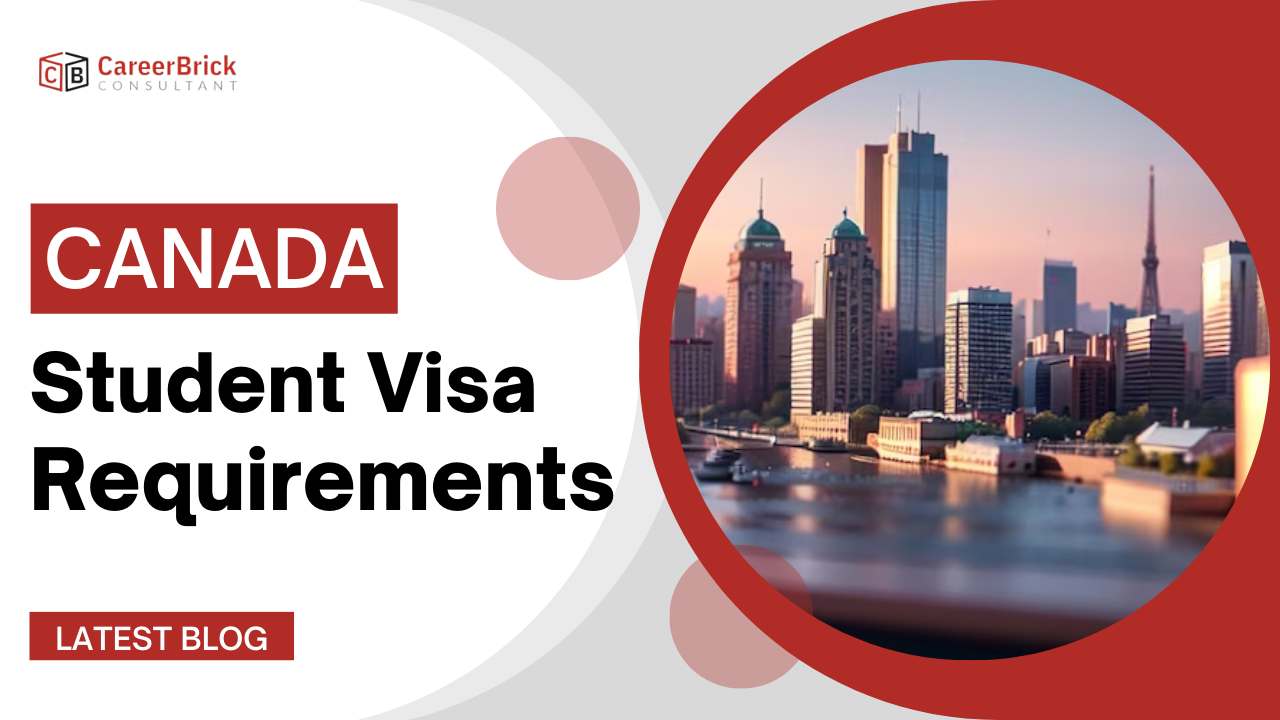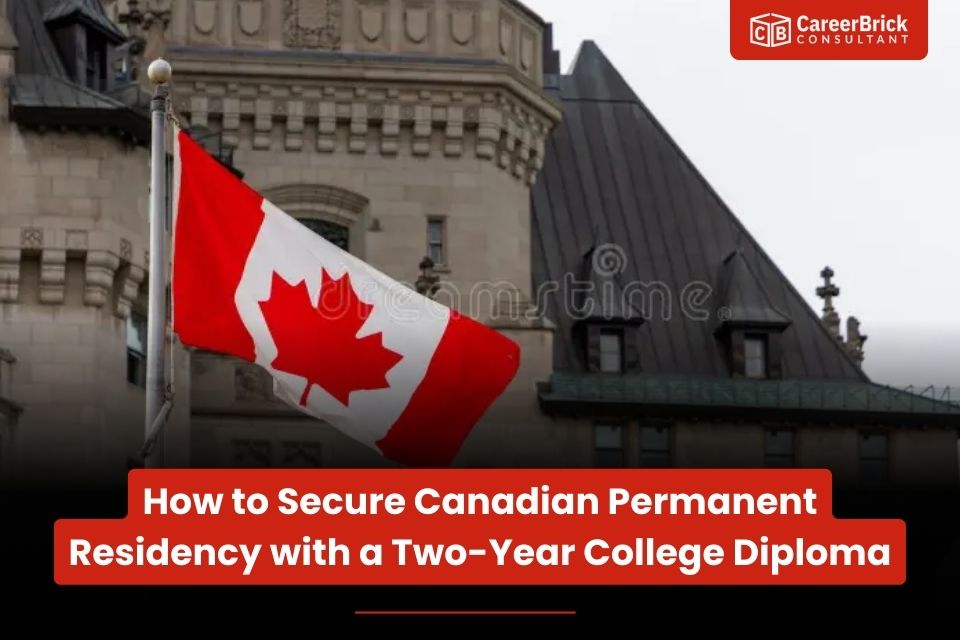Canada is considered as a dream study destination country for thousands of international students. Providing high-quality intellectual standards and an excellent educational system are some of the major hallmarks of Canada that students choose about this country. Canadian colleges and universities are renowned for their research-heavy curriculums, cutting-edge teaching strategies, and degrees that are accepted throughout the world. In worldwide university rankings, a number of Canadian institutions receive high ranks.
Above mentioned are some of the reasons why a lot of students choose Canada as a study destination for their higher studies. These are the reasons due to which a lot of Indian students are immigrating to Canada at a huge number every year. As per the latest records given by the Immigration, Refugees and Citizenship Canada (IRCC), around 35% of Indian citizens move to Canada with a study permit with the firm decision to pursue their bachelor’s, master’s, diploma, and certification courses at the highly-recognized Canadian institutions.
Moving to a new country requires a lot of preparation whether it is documentations, shopping, and many more. One of the most asked questions when it comes to apply for the Canadian student visa is the list of documents and the entire process. Applicants get confused while applying for the Canadian student visa permit and they raise queries related to the documentations, funds, process, and many more. Henceforth, in this blog, I will help you understand more about the Canada study visa requirements. Let us first discuss about different categories of the Canadian study permit.
Categories in Canadian Visa for Indian Students
There are two major categories in which student can apply for their Canadian study permit. One is Student Direct Stream (SDS) and another one is Non-Student Direct Stream (Non-SDS), among which students can apply for their Canadian visas as per their convenience.
SDS category is a visa category which provides approval from the embassy around 20 days, while non-SDS category gives approval in around 40 to 90 days. Students need to apply for their visa through online mode in the SDS category, whereas, in non-SDS, they can opt in both online and offline mode. The visa approval rate in the SDS category is higher when compared with the non-SDS category. Also, in SDS category, applicants get assured of student visa approval while, in non-SDS category, you do not get any kind of assurance of the visa approval.
Both the categories require some mandatory documents including Guarantee Investment Certificate (GIC), medical certificate, statement of purpose, passport, academic and work experience documents, letter of acceptance, digital photograph (35*45 with 80% zoom white background), embassy fees for Canada study visa is 150 CAD, biometric fees in 85 CAD, and income tax return. Apart from that, there are some special requirements that students need to fulfil while filing their visa.
Let’s see the list of specific documents that you need in these two categories separately:
For SDS category:
-
In this category, you need to pay the entire one year program fee before the visa application.
-
IELTS is mandatory for this category as the English proficiency examination.
-
You don’t need to show funds when the yearly ITR is above 9 lakhs for one year course.
-
This category is especially for the study permit.
For non-SDS category:
-
In this category, you can just pay one semester fee before the visa application.
-
For the English proficiency examination, you can show any exam such as IELTS, PTE, Duolingo, TOEFL, and more.
-
You can show liquid funds such as savings, ITR, Form-16, and so on.
- Applicants for study, work, and migration can file the visa under this category.
Applicants can file their Canada study permit visa applications in both the category. These categories assist applicants in successfully complete their visa applications and fulfil their dreams.
Eligibility Criteria for Canada Study Permit
When it comes to apply for the Canadian student visa, you need to fulfil some conditions and check the eligibility criteria. Here is some mandatory eligibility criteria that you need to check before the visa filing. Let’s have a look at them:
- You need to get yourself enrolled in the Canadian institutions and get the letter of acceptance from the respective institution.
- You need to arrange funds so that you can manage your program fees, living expenses, and more.
- You must not have any criminal record and must obtain a police certificate before the visa application.
- You need to get a medical certificate which shows that you are medically fit and do not have any kind of disease and disorder.
- YOu must have knowledge of the Canada student visa fees, which is 150 CAD.
- You need to qualify the English proficiency examination such as IELTS, Duolingo, TOEFL, PTE, and more.
- You need to submit the academic and work experience documents to check the minimum percentage and professional background.
These are some conditions that applicants must fulfil before applying for the study visa in Canada so that you can get your visa as soon as possible.
Documents That Need to be Handy before Filing
While applying for the Canadian student visa, you need to arrange some mandatory documents that you to successfully complete the visa filing process without any fuss. But, applicants get confused when it comes to collect documents and get refusal from the embassy. Therefore, I provide you with brief knowledge of the documents that you need while filing the Canadian student visa. Here is the checklist of the documents:
- Academic Documents: These documents include your school certificates and mark sheets of Class 10th and 12th, graduation mark sheet, provisional certificate, degree, diploma, certifications (in any), and extra-curricular certificates. Providing these documents will help the embassy to know your percentage for the course and the visa application.
- Professional Documents: You need to collect every possible document of your working experience that will help the visa officers to verify your work experience. In this, you need to show the documents of internships, trainings, and work experience. For this, you must have offer letter, promotion letter, relieving letter, experience letter, and more to show your work experience.
- Letter of Recommendations (LORs): You need to submit LORs from your respective institutions and companies whiling visa for universities. The minimum number of LORs that you need to show in the visa file is two and the maximum number of LORs is three.
- Language Proficiency Certificate: While applying for the Canada student visa, you need to appear for the English proficiency examination. Some of the proficiency examinations are IELTS, PTE, TOEFL, Duolingo, and many more. You need to submit the TRF in your visa file.
- Letter of Acceptance: You can apply for your student visa, once you get the Letter of Acceptance from the respective university. Having letter of acceptance will help you to show your reason to apply for the student visa and the tenure for which you want to stay in Canada.
- Identification Proof: In this, you need to submit your passport, Aadhar card, PAN card to show that you are citizen of India. Along with that, you need to give two passport-size with the dimensions of 35*45, 80% zoom and white background.
- Financial Proof: You need to show that you have sufficient funds that cover your living expenses, tuitions fees, and more. For this, you must attach GIC, education loan (if any), fee receipt, sponsorship letter, funds, 4 months bank statement, and bank draft of conversion rate from INR to CAD.
- Cover Letter, Resume: Attaching cover letter help the Canadian authority in learning about your purpose of visit to Canada. Resume aid the embassy to overview your academic and professional experience thoroughly.
- Statement of Purpose: Adding statement of purpose will help the admission committee to gain thorough access on your goals, beliefs, subject knowledge, projects, career goals, vision and many more.
- Medical: To check that you are medically fit and fine, the embassy demands for the medical test. In this test, you need to do your full-body check-up and covid-19 that can be done at different hospitals.
- Guaranteed Income Certificate (GIC): GIC is a mandatory document that you need to attach while filing your visa. You need to register yourself once you get your offer letter. The minimum bank balance for Canada student visa that you need to deposit is 10,000 CAD.
- Tuition Fee Receipt: Providing tuition fee receipt indicates that your admission in the respective course and institution is confirmed. Attaching tuition fee receipt will help the embassy to verify your enrollment in the course.
Submitting all these documents in your Canadian visa application will aid you to successfully get your study permit in the minimal time. Having your Canadian study permit will provide you with the opportunity to achieve your international degree.
Conclusion
Having a Canadian study permit will help you to successfully achieve your future goals and gain a globally-recognized degree. Having prior knowledge of all these documents and arranging them before the visa filing assist you to file your study permit application without any fuss. I hope that this article will aid you in fulfilling the Canadian visa requirements and get your Canadian study permit. For more information, you can refer other blogs on our website www.careerbrick.com.







